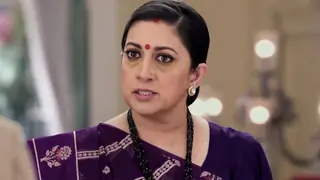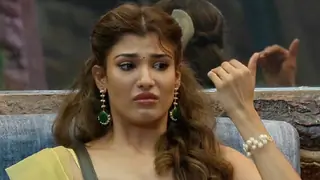and wanted to share with you all
All music lovers of Hindi Film songs should be highly indebted to the Great Music Directors of the Golden Era of 1950s and 1960s. Most of these music directors left a treasure of melodious songs behind them, which we still want to listen and enjoy even after 50 years. Many movies of the golden era have been long forgotten, yet the songs of these old movies still linger on to entertain us over and over again. There are lots of inside stories associated with these old music directors. The purpose of my article is to bring forward some of these inside stories to the readers.
I have written this article based on what I read in various cine magazines, Marathi books on film music, various radio and TV interviews. Later, I validated this information by checking with insiders of the Hindi film industry.
Shankar-Jaikishen: Popularly known as SJ, they were considered to be the magicians of swaras. They were the most prolific in composing variety of songs with almost no repetition. Almost every song of every movie, which was composed by this duo, was a super hit. SJ were responsible for bringing in more than 200 instrumentalists to support a song. In the 1940s, before SJ arrived on the scene, there used to be only 4 to 5 musicians to accompany a song. SJ were the trendsetters, and most of the time, other music directors had to follow this SJ trend or opt out from music industry.
When the song 'Kahan jaa raha hai' from Film Seema was recorded in Rafi's voice, in the final antara of the song '…Vo kyun tod daale', his voice cracked while rendering the word 'tod'. Normally, any such discrepancy would be removed and the song re-recorded. Shankar ordered that this song be re-recorded. But Jaikishen intervened and told Shankar to retain this song with the cracked voice at the word 'tod'. Since this song was being picturized for a tragic sequence, it would be very effective if this cracked voice was retained, Jaikishen reasoned. This was finally accepted by Shankar and this song with the discrepancy was retained as the final version. Those who saw this movie can see for themselves how effective Jaikishen's decision was.
When the song 'Mujhe tumse kuch bhi na chaahiye' from Film Kanhaiyaa was being composed, one of Jaikishen's beloved uncles had just died. Jaikishen was in a very sad mood. He instructed lyricist Hasrat Jaipuri to write the lyrics that will express Jaikishen's sad feelings at the time. Hasrat Jaipuri did justice by penning down appropriate sad words. Jaikishen set the tune in raga Darbari. And all of us know how sad we get when we listen to this song, especially when we listen to the lyrics 'Mujhe mere haal pe chod do'. In reality, this song represents the sadness Jaikishen felt at the time of composing this song.
When the song 'Manzil vo hi hai pyar ki' (Film: Kathputli) was being recorded by SJ, the new singer Subir Sen could not render it properly. There were more than 18 takes and yet singer Subir Sen could not deliver. Finally, Shankar got so upset that he decided to replace Subir Sen with some other singer. But Jaikishen persuaded Shankar to try one more time. Jaikishen advised Subir Sen to concentrate a little bit more. This encouraged Subir Sen and he did full justice to the song at the next take, and finally the song was recorded to the satisfaction of Shankar. This song went on to become a hit.
At the time of recording of 'Pyar huwa, ikraar huwa' (Film: Shri 420), sthaayi (beginning piece) of this song was composed by Shankar and antara (middle piece) was composed by Jaikishen. Later, Shankar wanted to change the antara composed by Jaikishen, which Jaikishen vehemently opposed. Finally, this confrontation led to fist fight between the two greats. Only the timely intervention by other musicians calmed down both of them and finally Shankar agreed to retain Jaikishen's composition of antara 'as is'. We all know this song is very popular even today and the best rain song composed ever.
When film Sangam was released, in the beginning, the song 'Dost dost na raha' composed by Shankar topped the music popularity charts far ahead of another song 'Ye mera prempatra padhkar' composed by Jaikishen. At a weekend music party hosted by Raj Kapoor to celebrate the success of Sangam, one of the guests asked Jaikishen why his song was lagging far behind Shankar's in the popularity charts. Jaikishen told him to wait for few more weeks and check the charts again. Later, the same guest approached Shankar and told him what Jaikishen had just said. Shankar was furious at Jaikishen's remark. This was really a battle royal of Shankar vs Jaikishen. Few weeks later, as Jaikishen had predicted, his song 'Ye mera prempatra padhkar' topped the popularity charts far ahead of Shankar's 'Dost dost na raha'. Personally, I like both the songs.
Once, in early 1950s, Lata had refused to sing the song 'Main baharon ki natkhat rani' (Film: Boot Polish), because initially the lyrics were 'bazaron ki', which was objectionable to Lata. So it was changed to 'baharon ki' for Lata's sake. Even then Lata would not budge and continued her refusal to sing the song, and finally SJ had to record this song using Asha's voice.
When superhit song 'Main kya karoon ram mujhe buddha mil gaya' was being composed at the behest of Raj Kapoor, because of the earlier incidence, SJ were worried that Lata would refuse to sing this song because of the lyrics. Lata always used to be very particular about the lyrics of the songs before recording. And Raj Kapoor wanted SJ to record this song as quickly as possible with Lata as the singer. SJ decided to trick Lata. So, SJ telephoned Lata and told her that a quick picturization of a song for Sangam had to be done at RK studios, and that she should come immediately and record the song without much rehearsal. So Lata came hurriedly and the song was quickly recorded before giving any time to Lata to grasp the meaning of the lyrics. We all know how much fun this song brought to the audience when beautiful Vyjayantimala danced to the tune, teasing aging Raj Kapoor.
Song 'Rasik Balma' (Film: Chori Chori) was so much liked by famous producer Mehboob Khan that when he was hospitalized in Los Angeles, since the record was not available in the US at that time, he telephoned Lata in Mumbai and asked her to sing this song over the telephone. Listening to this song brought Mehboob Khan a great solace while he was still recuperating in the hospital. And thereafter, Lata sang this song for him over the telephone for many more days. Hats off to Jaikishen who composed such a great tune.
Dattaram was assistant music director to SJ till the end. SJ were very considerate towards Dattaram. Dattaram was a great tabla and dholak player. The beautiful dholak in the song 'Gori gori gori main pariyon ki chhori' (Film: Begunah) was played by Dattaram. In my opinion, this was the best dholak accompaniment ever.
While being assistant music director to SJ, Dattaram also worked as independent music director and composed music for a few films. Most notable was his melodious music for the film Paravarish of 1958. Do you remember that lovely and all time song of Mukesh 'Aansoo bhari hai, ye jeevan ki raahe' from the same film?
In the late 1960s, Shankar and Jaikishen were breaking apart because of Shankar's excessive insistence to take singer Sharda in place of Lata, which Jaikishen never liked. Although SJ continued to give music together, they were really competing against each other. Finally, differences grew up so much that Raj Kapoor literally had to pull both of them together to compose music for his film Mera Naam Joker of 1970. Later, Shankar and Jaikishen took independent contracts as music directors although they still continued to give combined SJ name. For instance, in film Andaz of 1971, music was completely composed by Jaikishen, yet in the film credit, the name Shankar-Jaikishen was retained. Film Andaaz was Jaikishen's last film. Jaikishen died on 12th Sept.1971.
After the death of Jaikishen, Shankar continued to compose music under the banner name Shankar-Jaikishen, but with the exception of his music for the film Lal Pathar (1976), Shankar's music failed miserably. Maybe after Shankar lost his soulmate Jaikishen, he could not compose properly. Shankar died later in 1987.
S.D. Burman: S.D. Burman was one of the most brilliant music directors of 1950s through mid 1970s. He was the only music director who continued to give very melodious music until his last film Abhimaan (1973). His frail health did not allow him to take too many music contracts. So he composed music for fewer films per year. He never depended on any one particular singer. On the contrary, he kept on experimenting with a variety of singers. It was one particular folk tune sung by tribal people in the forests of Tripura (which many years later he used it for the song 'O re maazhi' in the film Bandini) that SDB used to listen to during his childhood, which inspired him to become a composer. Later, SDB himself sang this song for the film Bandini.
His son R.D. Burman assisted him most of the time until RDB himself became an independent music director in his own right. Most of the mouth organ pieces in SDB films were played by RDB. RDB was a great mouth organ player. In 1956, when SDB composed music for Dev Anand's film Funtoosh, after the release of this film, RDB discovered that his father had stolen one of his tunes for the song 'Ai meri topi palatake aa'. When RDB questioned his father the reason for this, SDB, in his characteristic Style, replied that he purposely did it so that he could test RDB's composition skills in public domain. Everyone knows this song became very popular.
When RDB started composing music independently, one day he noticed SDB returned from his morning walk in a very good mood, which was very unusual. So RDB asked his father the reason. SDB replied that while he was taking his morning walk, he came across two people who were talking to each other. One person told his companion, "Look, R.D. Burman's father just walked by." This statement assured SDB that RDB had finally arrived in music world. Earlier, RDB was known as SDB's son. Now on, people will recognize SDB as RDB's father.
SDB gave new lease of life to Kishore Kumar. In 1968, after singing for RDB's 'Padosan', KK was not getting any assignments and, out of frustration, decided to go back permanently to his native place Khandwa in MP. KK's song 'Kehna hai, kehna hai' in the film was supposed to be his career's last song. At this time, it was RDB who requested KK to stay back in Mumbai for few more weeks and assured KK that his father SDB was in the process of composing specially tailored songs for KK in Aradhana (1969), which could change KK's fortunes. KK roared back with the song 'Mere sapnon ki rani kab aayegi tu' and never looked back until his death in 1987. He surpassed Manna Dey, Mukesh and even Rafi. RDB went on to use KK's voice superbly in many of his films in 1970s and 1980s. RDB always used to say that KK, Asha Bhonsle and he understood each other very well musically. And this was the precise reason how RDB could compose very romantic duets using this pair.
Initially, SDB wanted to give the famous song 'Jalte hai jiske liye' (Film: Sujata) to Rafi. It was SDB's assistant Jaidev who strongly recommended taking Talat Mehmood instead of Rafi. By looking at the composition, he insisted that only Talat could do justice to this song and not Rafi. However, SDB would not listen to Jaidev. Finally, SDB bowed down and took Talat to sing the song. We all know that Talat did full justice to this song with his mellow voice.
When RDB was young, SDB was very much worried about whether his son was picking up the composing skills or not. So, whenever lyricist Majrooh Sultanpuri visited his house, SDB used to tell Majrooh to talk to RDB and make him pay more attention to composing skills. Majrooh always told SDB that if father could not fix his son then how could an outsider like him do it. Anyway, RDB turned out to be one of the greatest music directors fulfilling the dream of his father. Unfortunately, SDB did not live long enough to see his son's super success.
Music Director Roshan was a family friend of SDB. Once Roshan came to SDB's house and asked his permission to use his tune 'Thandi Hawaayen' (Film: Naujawaan) for his forthcoming composition for the song 'Rahe na rahe hum' (Film: Mamta). SDB gladly gave him permission and Roshan made some cosmetic changes and composed this song very well. Later, RDB used the same tune and composed 'Saagar kinare' (Film: Saagar). If you listen to all 3 songs, you will notice that all of them have same Bandishi and hence sound similar.
Once in a while, SDB asked his assistant music directors to compose antara of the song. SDB composed sthaayi of the song 'Piya tose naian lage re' (Film: Guide) on raga Khamaj, and then went out to eat paan (betel leaves). In the meantime, he told his assistant music directors to compose the antara. When he returned to the recording room and listened to the antara composed by his assistants, he immediately realized that it was a very poor composition. He scolded his assistants and discarded this antara and then sat down to compose it himself, and came out with brilliant composition within a short time. His assistant music directors were dazzled to see the brilliance of SDB. We all know how melodious this classical song is.
Singer Bhupendra used to be a leading guitar player in SDB's orchestra. There were rumors that some of the songs of film Aradhana were composed by RDB. But according to Bhupendra, contrary to this popular belief, all the songs of the film were composed by SDB.
O.P. Nayyar: O.P. Nayyar is also referred to as the king of rhythm. The music director gave the most intoxicating songs and made best use of Punjabi dholak in Hindi film songs. He was also responsible for creating the 'Tonga' beat or 'Horse Hoof' beat which was used by other music directors as well. OPN was the only music director who made his songs popular without using Lata Mangeshkar.
During the recording of one of the songs for one of his earlier films Aasman of 1952, he had invited Lata to sing a song for him. It is said that while Lata was in the mixing room of the recording studio, she heard OPN badmouthing the recording technicians. After listening to some objectionable words, Lata immediately got up and left the studios without telling OPN and never again associated with him. Now both Lata and OPN deny that such a thing ever happened. Both of them always maintain that they are good friends and respect each other. OPN finally took her sister Asha Bhonsle for many of his songs, which went on to become superhits. In fact, Asha is very grateful to OPN for giving her a break in the real sense. It was Film Naya Daur that brought Asha to the forefront of popularity along with her sister Lata who already had made it big.
OPN was a strict disciplinarian. He never tolerated any artist coming late for his recordings. Once he turned back Rafi for reporting to the studios just 10 minutes late for the song recording of the film Hum Saaya. But when next day Rafi arrived on time, same OPN embraced him and the song was recorded.
Sometimes, OPN was short tempered. After the success of SDB's music for Gurudutt's film Pyaasa, great lyricist Sahir Ludhianvi went on telling everyone that it was he (Sahir) who made the career of SDB. OPN respected SDB very much. After listening to Sahir's boast, OPN got so upset that he removed him from many of his future films and brought other lyricists to write lyrics for the songs composed by him.
Most of the music directors compose the tune first and then ask lyricists to compose the lyrics accordingly. It is a big frustration to the lyricists to fit words into a precomposed tune. OPN worked differently. Many a times, he asked the lyricists to write the lyrics first and then composed the tune using the lyrics. OPN always used to say that fitting lyrics into a precomposed tune was equivalent to forcing a dead body (without knowing its size) into a prefabricated coffin.
In a recent interview, OPN confessed that he never had any training in music even for one day, let alone classical music. And nobody in his family had any music background. In late 1950s, OPN composed music for the film Phagun. Ustad Amir Khan listened to all the tunes on the radio and was so happy that he immediately telephoned OPN and congratulated him for composing all songs of this film using one raga Pilu. OPN was stunned to hear this. He told Khan saab that he was not even aware of it when he composed these songs that he had based them on raga Pilu.
It will be interesting for readers to know that one of OPN's most favorite song is Geeta Dutt's 'Tadbir se bigdi huwi taqdeer bana de' (Film: Baazi) which was composed by SDB.
Naushad: When it came to composing songs based on Hindustani classical music, no other music director could beat Naushad. His composition for the film Baiju Bawara is considered by experts to be the best classical ever in Hindi films. Naushad always tried to give prominence to Indian musical instruments. He was not in favor of using western instruments, although occasionally he did use them. His composition of classical based songs 'Man Tadpat' (Raga: Malkauns) and 'O! Duniya ke rakhwale' (Raga: Darabari) in the film Baiju Bawara are the best compositions ever for these two respective ragas.
When it came down to composing music, Naushad was a perfectionist. When Rafi was doing the rehearsals before recording the bhajan 'Man Tadpat', Naushad discovered that Rafi had a problem in pronouncing certain Sanskrit words in the lyrics. Naushad immediately brought Sanskrit pundits from Varanasi and asked them to work on Rafi's diction. These Sanskrit pundits worked day and night to improve Rafi's diction and after several rehearsals, Naushad gave the green signal for the final recording. And this bhajan went onto become an all time hit and is sung in almost every Hindu temple all over the world.
After the great success of classical music of Baiju Bawara (1953), Naushad had already won the admiration of the famous producer V. Shantaram. In 1953, when Shantaram was planning to produce his most famous film Jhanak Jhanak Payal Baje, he initially invited Naushad to compose music for this film. At this time, Naushad already knew that great music director Vasant Desai was already an employee of Shantaram's Rajkamal studios. Naushad thanked Shantaram for the offer. But after a few minutes of chat, pointed out that when music director of the caliber of Vasant Desai was already available in Rajkamal Studios, it would be appropriate that Shantaram offer this film music to Vasant Desai. He also stressed that Vasant Desai was fully capable of giving classical based music. So Naushad was noble enough to forego the opportunity to compose music for Shantaram's film. After coming to know about this incident, next day, Vasant Desai, with tears in his eyes, personally came to Naushad and thanked him for this noble gesture. We all know that Vasant Desai did a wonderful job in composing classical based music for the film Jhanak Jhanak Payal Baje.
Naushad not only gave music with classical base but he also guided most of the producers to write effective script for their films. Naushad put lots of efforts in bringing the script in line with the music that he had in mind for a particular movie based upon the story of the movie. Very few music directors acted this way.
Naushad's in-laws were totally against Hindi films and its music, and they considered it to be a social stigma. Naushad's family hid this fact from his would be in-laws before he got married. And the in-laws were not aware that Naushad was a music composer in Hindi films. The songs of his film Ratan had already become a super hit all over India. Ironically, his Baaraat (wedding band) in his native place in UP (far away from Mumbai), played songs from the film Ratan. Naushad got scared. In order to show his innocence, he asked one of the members of his in-laws' wedding party if they liked what the band was playing. And most of them said that they enjoyed the tunes being played by the band and wondered as to who may have composed these tunes originally. Naushad heaved a sigh of relief but did not disclose that he was the composer of those tunes.
C. Ramchandra: CR was a creative genius who had his own style in composing music. When film Azaad was to be produced in the south, the producer of this film was in a great hurry to remake his Tamil version into Hindi version. So he asked Naushad to give music for the film within a short period of three months. Naushad would never undertake a project with tight time constraints. So he refused the offer. So the producer requested CR and asked him if he could do it within three months. CR accepted the offer and completed the composition of all songs within seven days. CR proved that he could produce very good music even under pressure. Music of the film Azaad was a superduper hit. In fact, along with film Anarkali, music of film Azaad is considered to be CR's lifetime best.
Sometimes, CR also gave playback in his voice. Many a times, his voice sounded like that of Talat Mehmood. So when Talat fell sick on the recording day for the song 'Kitna haseen hai mausam' for the film Azaad, CR decided to sing it himself. He sang it very well and it was very close to Talat's voice. Similarly, he sang two songs for his film Baarish, which again sounded like Talat's voice.
Before CR came on the scene, many other music directors worked on the music composition for film Anarkali (1954). The producer of this film kept replacing music directors. It was like a revolving door. Finally, CR stepped in and fine tuned all the songs and gave one of the best music of his career. During the composition of the intoxicating song 'Mohobbat me aise kadam dagmagaaye' for this film, CR had a problem in fitting a proper word after '…peeke aaye' as there was a small gap. He decided to go home to think more about it. On his way back home, he bought lots of grocery and then while climbing the stairs of his home with heavy grocery bags, he started getting hiccups. Suddenly, he realized that he could use hiccups after '…peeke aaye'. After entering his home, he immediately played the tune on his harmonium with a hiccup added at the end. The gap after the lyrics '…peeke aaye' was filled up and the song was completed. Next day, he recorded this song with Lata's voice and when Beena Rai as Anarkali sang this song on the screen with a hiccup, the effect was tremendous.
CR accepted suggestions from other music directors as well. In his song "Ye zindagi usi ki hain" (Film: Anarkali), he accepted the suggestion from music director Roshan to add "Alvida" at the end of the song which made the situation very effective in the last scene of the Film Anarkali when this song was sung by actress Bina Rai as Anarkali.
CR also gave suggestions to other music directors. He suggested to S.D. Burman to add 'La la la la' in the song 'Thandi hawayen' (Film: Naujawan), which SDB gladly accepted and implemented. With this addition, the song became even more romantic.
Madan Mohan: Madan Mohan served in Indian Army and later decided to compose music. His father was very rich and owned Filmistan Studios. But Madan Mohan never used his father's name. He came up in the music world on his own. He is one music director who made best of Lata's voice. Lata and Madan Mohan were emotionally close to each other. They made a very good team and created very emotional solo songs.
When it came to composing music, MM was a very intense person. Once while recording a song, one of the musicians was playing his instrument out of tune (besura), MM was so upset that he banged the glass window of the recording room with his hand. The glass broke and MM's hand was bleeding. He shouted at this musician, "How come you are so shameless and dare to play out of tune in Madan Mohan's orchestra! Come on. Shape up or ship out." Needless to say that musician corrected himself immediately.
While recording the song 'Aaj socha to aanso bhar aaye' (Film: Hanste Zakhm), Lata got so emotional that she started crying before the song recording could be completed. MM immediately requested Lata to go home and relax and come back again for recording the next day. Next day, after regaining the composure, Lata rendered the song very effectively.
Madan Mohan was a close friend of Jaikishen along with other talented composer Murli Manohar Swarup. Murli Manhar Swarup composed some private albums but could never make it big like his two friends.
Kalyanji-Anandji: Music director Kalyanji's father owned a grocery shop in Mumbai and young Kalyanji used to look after the shop. One day, one customer could not pay for the grocery bills and instead of making the payment, the customer made a deal with Kalyanji that he would teach him music in lieu of the payment. Young Kalyanji agreed and learnt basic lessons of music from this customer. In later stage of his life, Kalyanji made music as his profession and, along with his brother Anandji, became a famous music director.
When Kalyanji was composing music for his first Hindi film Samraat Chandragupt, producer Subhash Desai used to visit recording studios with some of his sycophants. Kalyanji had composed the first song 'Chahe paas ho, chahe dur ho' very well. When Subhash Desai and his sycophants heard the tune of this song from Kalyanji, Subhash Desai did not like the tune and remarked to Kalyanji "Is gaane me 'Vo' waali baat nahin hain" (This song does not have that special quality). This was Kalyanji's debut film. Kalyanji did not know how to convince Subhash Desai. Kalyanji began to think, "Ab ye 'Vo' waali baat kahan se laaye?" (From where can I bring this special quality?) Suddenly Kalyanji got an idea, he gave money to the beggars who used to beg outside Subhash Desai's house and told them to sing the song 'Chahe paas ho' in chorus whenever Subhash Desai stepped out of his house. After listening to this song from beggars several times, one day Subhash Desai came to Kalyanji and told him that his songs have become popular even before the release of the film. Interesting fact was that the song was not even recorded. Sometimes, music directors have to deal with the producer's whims in this manner.
Above are some of the inside stories of seven famous music directors of the 1950s and 1960s. It is very difficult to cover the inside stories of all the famous music directors of this period. So I am summing up below only a few of them, and this in no way reflects my bias towards any music directors. I apologize for leaving out some music directors due to lack of information. Please note that I respect all of them equally.
When music for B.R. Chopra's Film Nikaah (1982) was being composed by music director Ravi, actress Salma Agha had a put a condition Chopra that she will act in the film as a heroine only if he gave her a chance to sing the key songs of this film. Ravi was not happy with this condition. According to Ravi, when he was recording the song 'Dil ke armaan aansovo me behe gaye ', he had to rehearse this song 25 times with Salma Agha and yet she could not render it properly. Ravi almost gave up and decided to replace her with Asha. But B.R. Chopra intervened and asked Ravi to stick with Salma Agha. And finally Ravi reluctantly recorded the song with Salma's voice.
Hemant Kumar was the music director of the film Shirth. Hemant Kumar, at the behest of the producer of this film, composed 22 different tunes for the evergreen song 'Na ye chand hoga, na taarey rahenge' and the producer finally selected one tune after carefully listening to all 22 tunes. The final tune selected is a very romantic tune indeed and is popular even after so many decades. I wonder how the other 21 tunes sounded.
Music director Salil Chowdhary was always fascinated with western classical music, especially European musicians such as Mozart. So when he composed the song 'Itna na na mujh se tu pyar badha' (Film: Chhaaya), he literally used Mozart symphony tune and adapted it to please Indian musical taste. This song became very popular.
Many a times, very famous music directors invited great classical vocalists and instrumentalists to sing/play for their compositions. For example, Ustad Akbar Ali Khan played sarod for Shankar-Jaikishen's Film Seema (1956) in the song 'Suno choti si gudiya ki lambi kahani'. Flautist Pannalal Ghosh was invited to play flute for Shankar-Jaikishen's 'Basant Bahar' including the song 'Main piya teri'. The flute interludes were very meditative. Music director Vasant Desai invited shehnai maestro Ustad Bismilla Khan to play shehnai for some of the songs for the film Goonj Uthi Shehnai. Naushad requested Pt. Paluskar and Ustad Amir Khan to sing a classical duet 'Aaj gawat man mero jhumke' based on raga Desi for the film Baiju Bawara, which both of them rendered very beautifully. Later, Naushad invited Ustad Bade Ghulam Ali Khan to sing two classical pieces for the film Mughal-E-Azam.
R.D. Burman gave music to only two films in 1960s: first one was Chhote Nawaab and second one was Teesri Manzil. So RDB can be considered to be more of a music director of 1970s, 1980s and 1990s. RDB is the only music director whose music career spanned from the golden era of 1960s through new era of 1990s.
When Nasir Hussein was producing the film Teesri Manzil (1965), hero Shammi Kapoor asked him to take Shankar-Jaikishen as its music director. Nasir Hussein decided to give chance to the young budding music director R.D. Burman. Shammi Kapoor did not like the idea, but agreed to listen to the tunes composed by R.D. Burman. When he listened to the tunes 'O mere sona re sona re sona' and 'O haseena zulphon wali', Shammi Kapoor immediately started dancing to the beat of the tunes. He immediately gave his consent to taking R.D. Burman. When Jaikishen came to know that R.D. Burman got the contract, he immediately telephoned him to congratulate and wished him all the best. Such was a close relationship between the music directors of the 1950s and 1960s. The film Teesri Manzil along with its great music went on to become a big box-office hit.
R.D. Burman played mouth organ in the famous song 'Hai apna dil to awaara' (Film: Solva Saal). In Gurudutt's classic film Pyaasa, R.D. Burman played a particular mouth organ tune to represent the presence of Mala Sinha on the screen. So in some of the scenes just before the entry of Mala Sinha on the screen, this tune was played in the background to indicate that Mala Sinha would soon be appearing on the screen.
Since S.D.Burman was one of my most favorite music directors, I am attaching herewith an audio file where I played on my mouth organ the popular song 'Khwaab ho tum ya koyi haqiqat kaun ho tum batalavo' from the film Teen Deviyaan (1965) composed by S.D. Burman. In the original song, just before the first antara, a mouth organ piece was played by R.D. Burman himself.
Source: http://www.sulekha.com/printer.asp?ctid=1000&cid=306916




























